Abstract
The purpose of this paper is to examine the changes in health information and health information work using a conceptual framework and to consider the implication of these changes for health sciences librarians. The notion of what constitutes information depends heavily on the perspective of those defining the term. In the health care domain, numerous established concepts of information exist, many clustering around disciplines and professions. Various information professions-for example, health sciences librarians, information-systems managers, and medical-records administrators--have differing core concepts of information. Although these established concepts of information may seem immutable, they are cultural facts and can and do change. Global networking and changes in health care delivery are just two of many environmental forces that are changing the way the health domain views health information and the way it values the patterns and practices traditionally associated with established types of information and information professions. As new concepts of information arise, the possibility for new expert work surrounding information also arises. Andrew Abbott's systems theory of professions, adapted to the health domain, suggests that some forms of established expert information work may diminish while new types may arise and that both established and new information professions will struggle with each other for official sanction, or jurisdiction, to perform new expert work. This competitive struggle is likely to produce a new balance of information work and roles among the information professions. The specialty areas of library and information science, the heartland of our knowledge base, are as relevant in the electronic environment as in the print environment. Our profession's challenge now is to redefine and communicate our jurisdictional place in the emerging health information environment.
Full text
PDF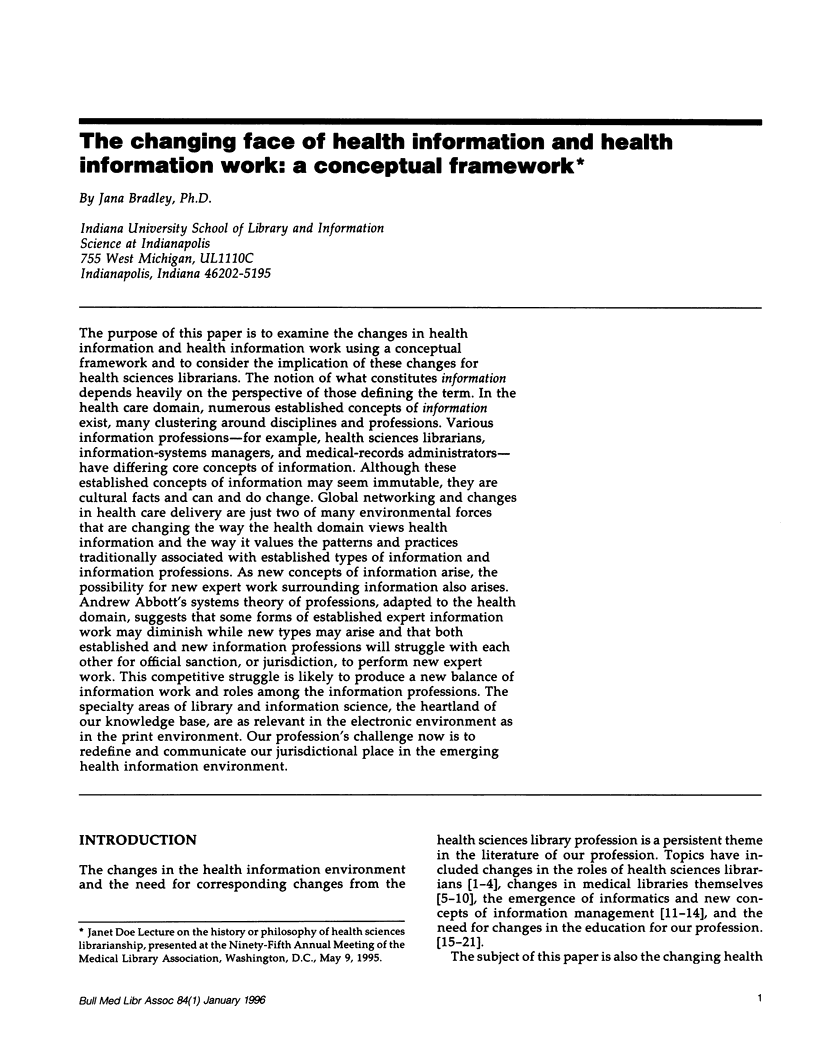
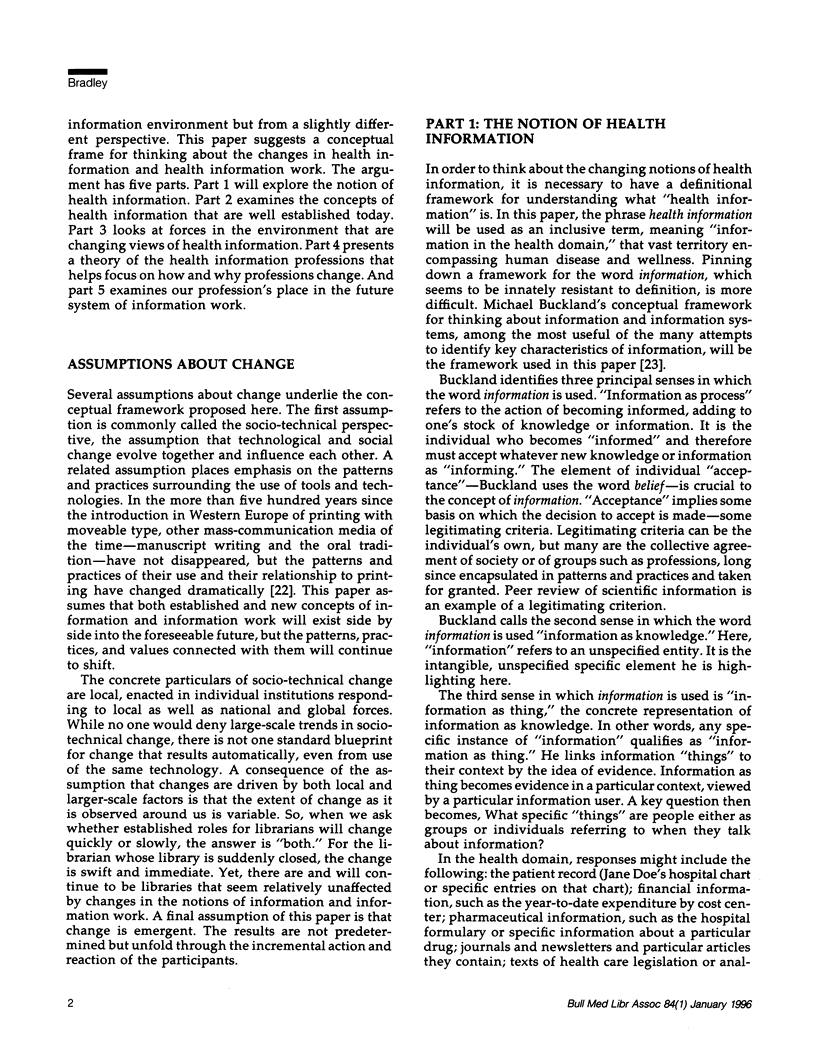
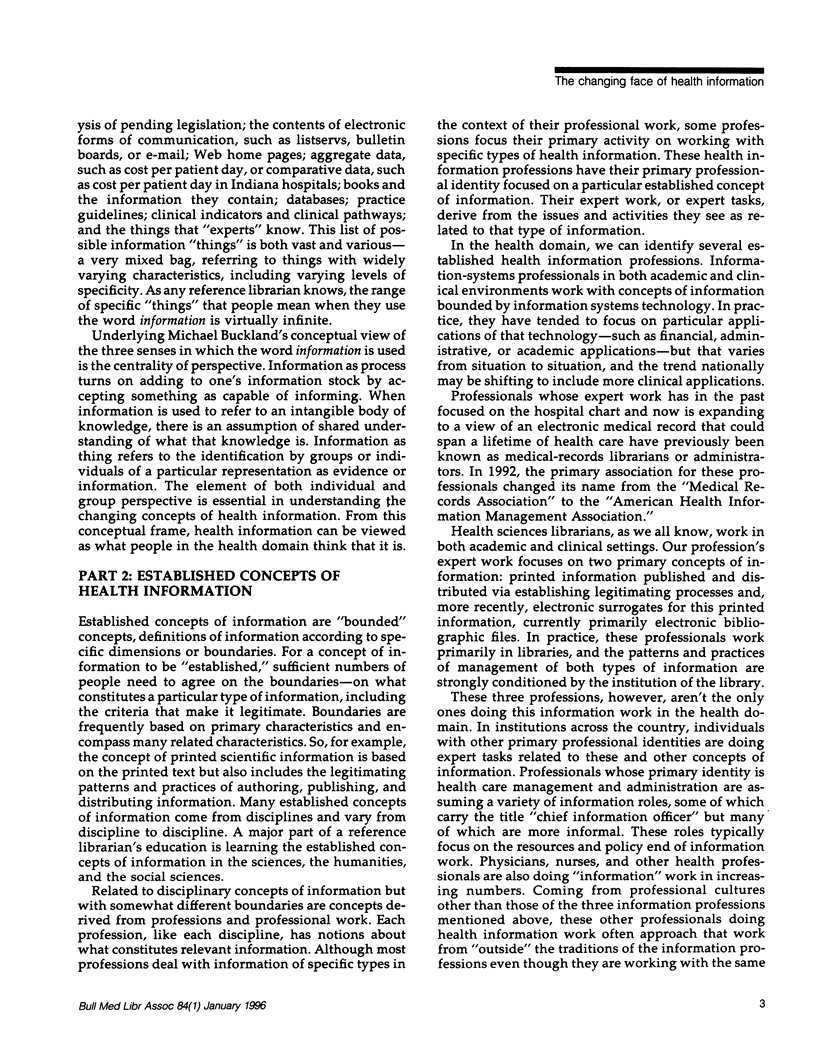
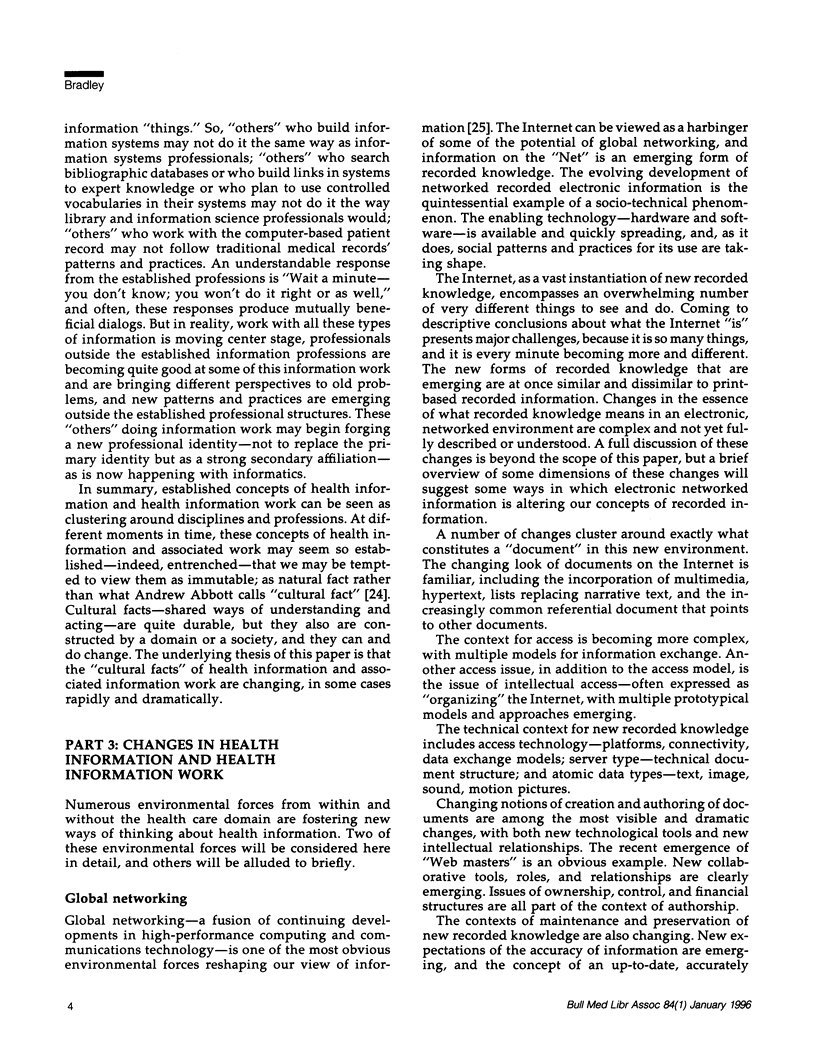
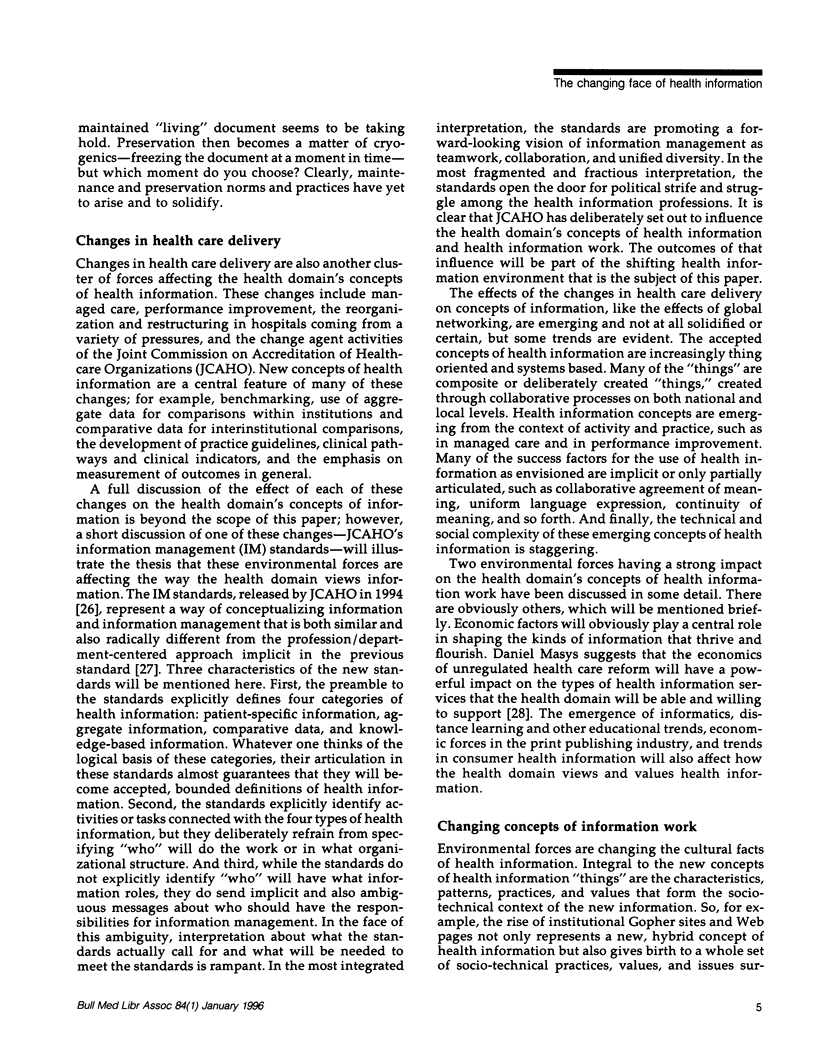
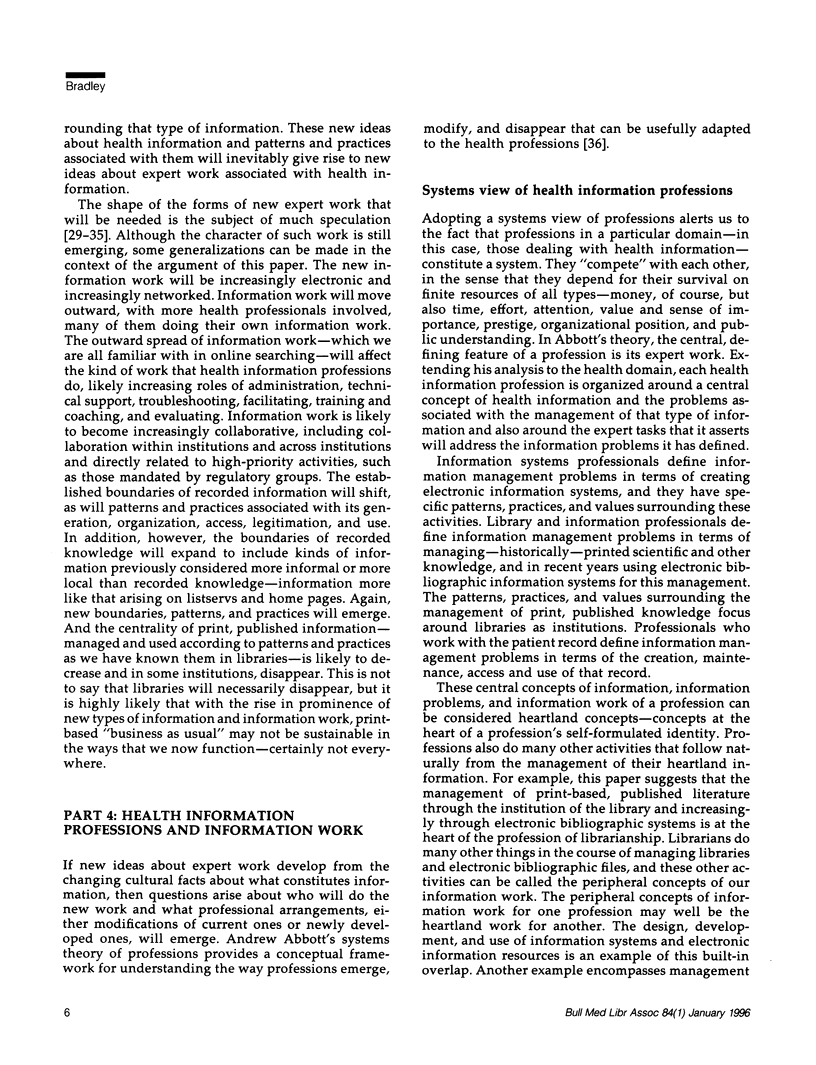
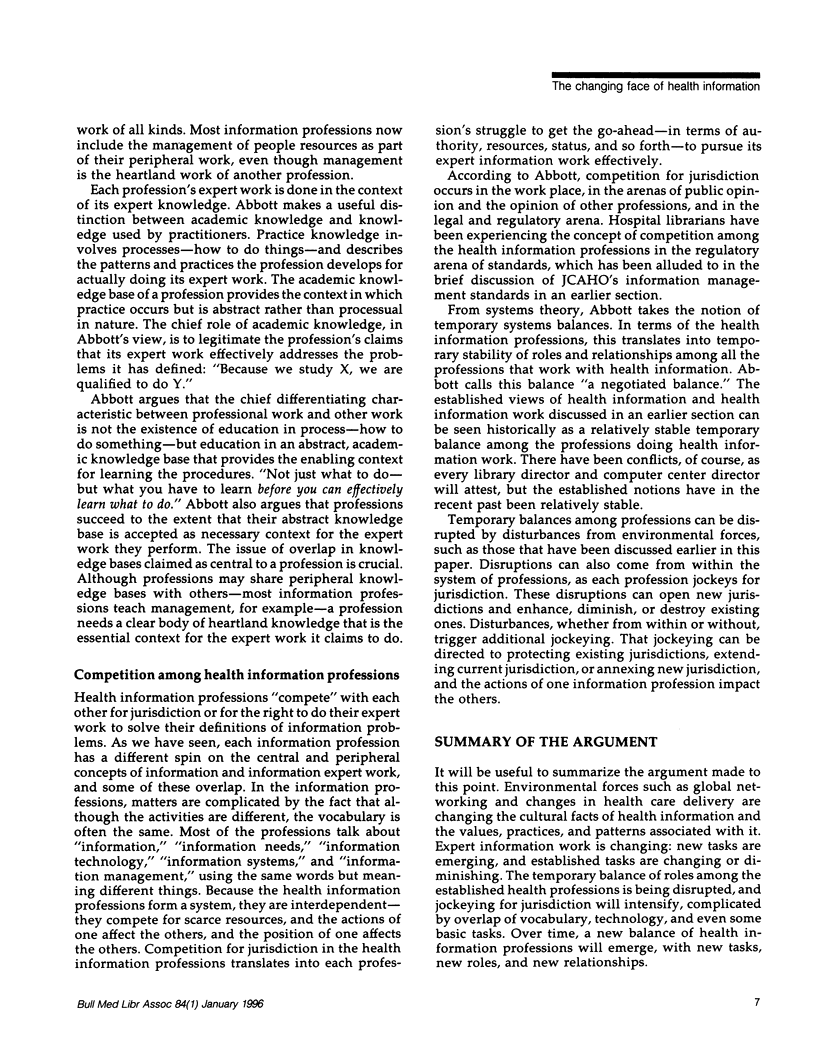
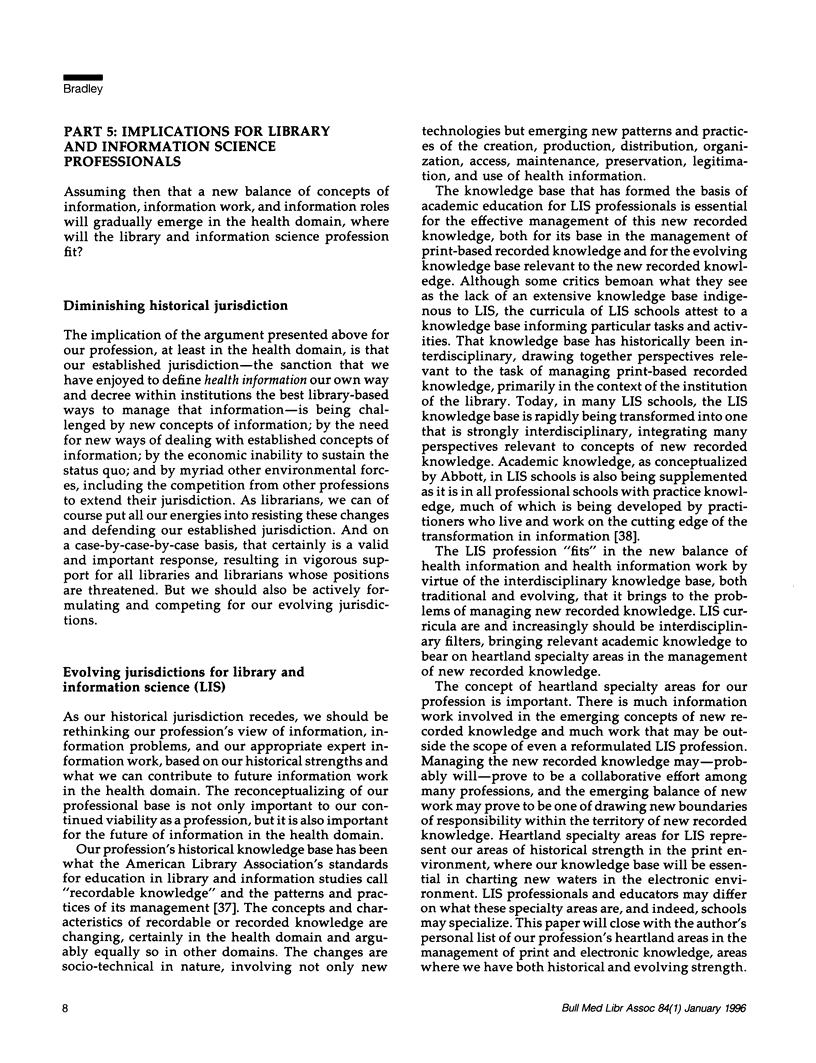
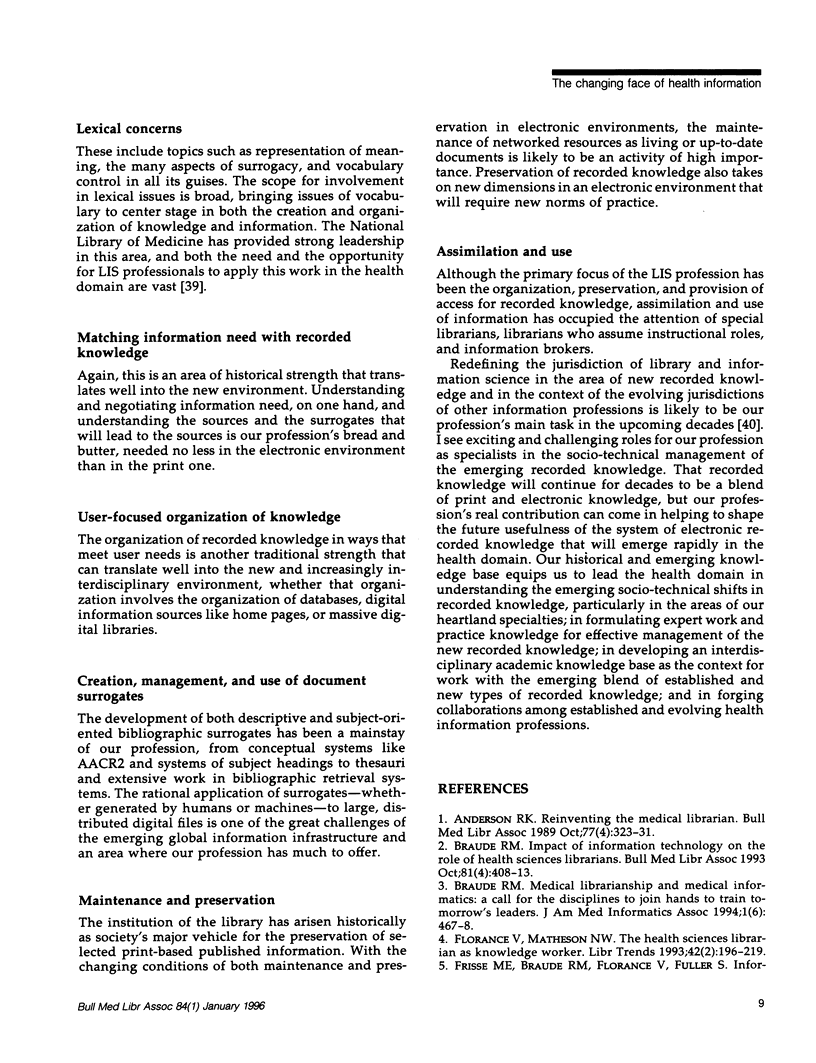
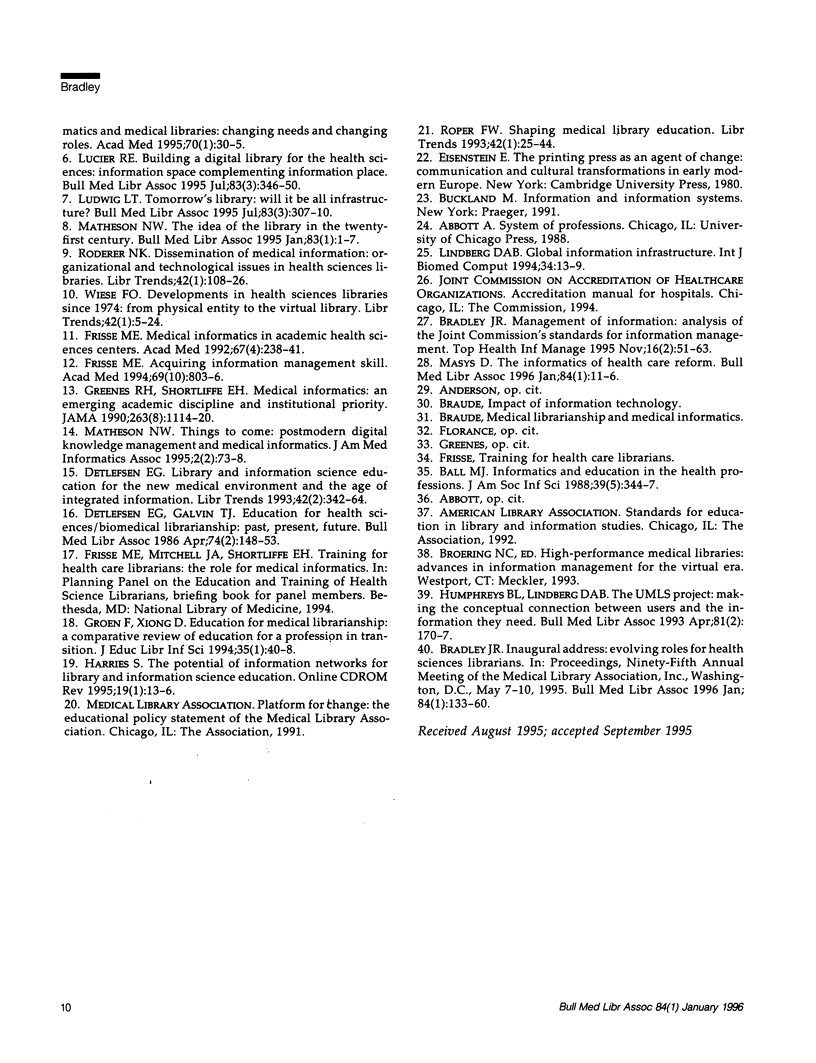
Selected References
These references are in PubMed. This may not be the complete list of references from this article.
- Anderson R. K. Reinventing the medical librarian. Bull Med Libr Assoc. 1989 Oct;77(4):323–331. [PMC free article] [PubMed] [Google Scholar]
- Ball M. J., Douglas J. V., Lunin L. F. Informatics and education in the health professions. J Am Soc Inf Sci. 1988 Sep;39(5):344–347. doi: 10.1002/(SICI)1097-4571(198809)39:5<344::AID-ASI12>3.0.CO;2-U. [DOI] [PubMed] [Google Scholar]
- Bradley J. Management of information: analysis of the Joint Commission's standards for information management. Top Health Inf Manage. 1995 Nov;16(2):51–63. [PubMed] [Google Scholar]
- Braude R. M. Impact of information technology on the role of health sciences librarians. Bull Med Libr Assoc. 1993 Oct;81(4):408–413. [PMC free article] [PubMed] [Google Scholar]
- Braude R. M. Medical librarianship and medical informatics: a call for the disciplines to join hands to train tomorrow's leaders. J Am Med Inform Assoc. 1994 Nov-Dec;1(6):467–468. [PMC free article] [PubMed] [Google Scholar]
- Detlefsen E. G., Galvin T. J. Education for health sciences/biomedical librarianship: past, present, future. Bull Med Libr Assoc. 1986 Apr;74(2):148–153. [PMC free article] [PubMed] [Google Scholar]
- Frisse M. E. Acquiring information management skills. Acad Med. 1994 Oct;69(10):803–806. doi: 10.1097/00001888-199410000-00003. [DOI] [PubMed] [Google Scholar]
- Frisse M. E., Braude R. M., Florance V., Fuller S. Informatics and medical libraries: changing needs and changing roles. Acad Med. 1995 Jan;70(1):30–35. doi: 10.1097/00001888-199501000-00010. [DOI] [PubMed] [Google Scholar]
- Frisse M. E. Medical informatics in academic health science centers. Acad Med. 1992 Apr;67(4):238–241. doi: 10.1097/00001888-199204000-00005. [DOI] [PubMed] [Google Scholar]
- Greenes R. A., Shortliffe E. H. Medical informatics. An emerging academic discipline and institutional priority. JAMA. 1990 Feb 23;263(8):1114–1120. doi: 10.1001/jama.263.8.1114. [DOI] [PubMed] [Google Scholar]
- Humphreys B. L., Lindberg D. A. The UMLS project: making the conceptual connection between users and the information they need. Bull Med Libr Assoc. 1993 Apr;81(2):170–177. [PMC free article] [PubMed] [Google Scholar]
- Lindberg D. A. Global information infrastructure. Int J Biomed Comput. 1994 Jan;34(1-4):13–19. doi: 10.1016/0020-7101(94)90006-x. [DOI] [PubMed] [Google Scholar]
- Lucier R. E. Building a digital library for the health sciences: information space complementing information place. Bull Med Libr Assoc. 1995 Jul;83(3):346–350. [PMC free article] [PubMed] [Google Scholar]
- Ludwig L. T. Tomorrow's library: will it all be infrastructure? Bull Med Libr Assoc. 1995 Jul;83(3):307–310. [PMC free article] [PubMed] [Google Scholar]
- Masys D. R. The informatics of health care reform. Bull Med Libr Assoc. 1996 Jan;84(1):11–16. [PMC free article] [PubMed] [Google Scholar]
- Matheson N. W. The idea of the library in the twenty-first century. Bull Med Libr Assoc. 1995 Jan;83(1):1–7. [PMC free article] [PubMed] [Google Scholar]
- Matheson N. W. Things to come: postmodern digital knowledge management and medical informatics. J Am Med Inform Assoc. 1995 Mar-Apr;2(2):73–78. doi: 10.1136/jamia.1995.95261908. [DOI] [PMC free article] [PubMed] [Google Scholar]


